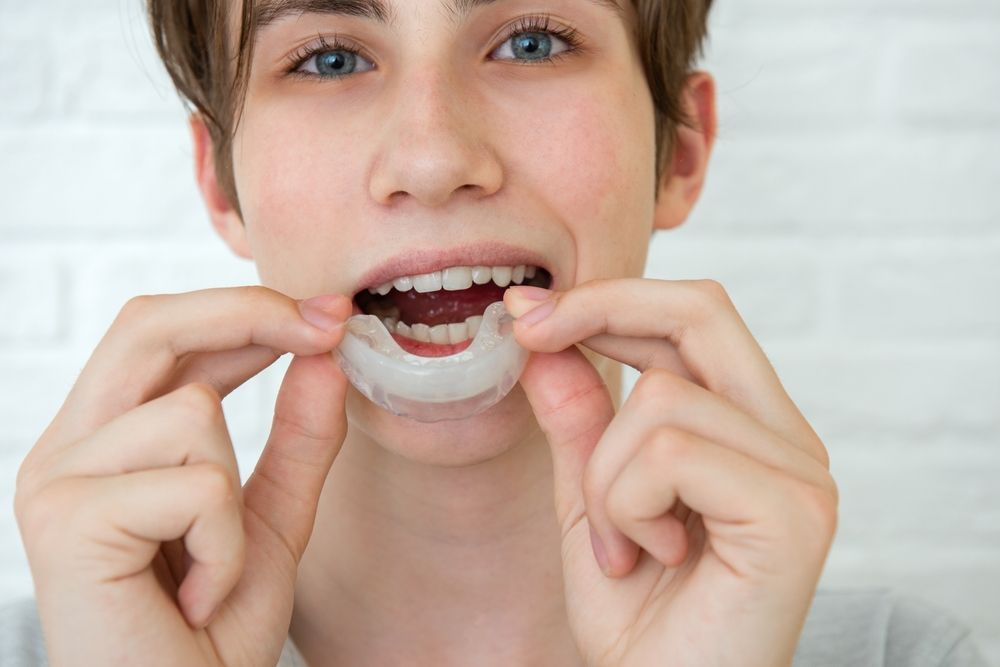Thumb sucking is a common behavior among young children. It’s a natural reflex that many babies and toddlers exhibit to soothe themselves. While thumb sucking is generally harmless in early childhood, prolonged or excessive thumb sucking can lead to oral health issues and affect the development of your child’s teeth. Dr. Shawn Taheri, DDS, of Dentistry for Children and Young Adults in San Jose, CA, explains what is considered normal thumb sucking behavior and when it may be time to seek professional help.
The Development of Thumb Sucking
Thumb sucking begins early in life, often during infancy, as a self-soothing mechanism. Babies and toddlers may suck their thumbs when they’re feeling anxious, tired, or just need comfort. This behavior can be incredibly calming, and it is typically a harmless way for children to cope with their emotions. In fact, thumb sucking is seen as a normal part of infant development, as it mimics the natural act of breastfeeding, which provides emotional comfort and nutrition to babies.
Most children will naturally outgrow thumb sucking between the ages of 2 and 4 years old, as they begin to develop other coping mechanisms and social behaviors. However, some children continue thumb sucking beyond this age. In these cases, it’s important for parents to understand when the behavior is no longer developmentally appropriate and when it could lead to potential dental concerns.
When Is Thumb Sucking Considered Normal?
Thumb sucking is generally considered a normal behavior when it occurs during infancy and early toddlerhood. Many babies begin sucking their thumbs in the womb and continue the habit as a source of comfort after birth. As long as the thumb sucking is occasional and does not interfere with your child’s daily life or oral development, it is typically not a cause for concern.
Here are some factors to keep in mind when evaluating if thumb sucking is within a normal range:
- Age: Thumb sucking is common in babies and toddlers, but it usually becomes less frequent as children grow older and develop other ways of self-soothing.
- Occasional behavior: If your child only sucks their thumb in specific situations, like when they’re feeling tired or anxious, this is generally considered normal.
- Short duration: Short periods of thumb sucking (usually under 30 minutes at a time) are not likely to cause any immediate harm to your child’s oral health.
As long as your child is under the age of 4 and the thumb sucking does not appear to be a constant habit, there is typically no reason to be concerned. However, as your child grows older, the likelihood of thumb sucking affecting their oral health increases.
When Thumb Sucking Becomes a Concern
While thumb sucking is generally harmless in early childhood, prolonged or excessive thumb sucking can start to cause problems. If your child continues to suck their thumb beyond the age of 4 or 5, it can affect their teeth, jaw alignment, and speech development. It is important to be mindful of any changes in your child’s teeth or mouth that could be related to thumb sucking. These include:
- Dental problems: Prolonged thumb sucking can cause the upper front teeth to become misaligned, a condition known as open bite, where the upper and lower teeth do not meet properly. This can result in difficulty chewing and speaking.
- Speech issues: Continuous thumb sucking may also affect speech patterns, particularly with the pronunciation of certain sounds, such as “s” and “z”.
- Jaw misalignment: In more severe cases, thumb sucking can affect the alignment of the child’s jaw, leading to issues like overbite or underbite.
- Skin irritation: Prolonged thumb sucking may cause irritation or sores on the thumb or surrounding skin.
If any of these issues arise, it’s essential to seek help from a pediatric dentist, such as Dr. Shawn Taheri, to assess the potential impact on your child’s oral health and to discuss strategies to help them stop the behavior.
Strategies to Help Your Child Stop Thumb Sucking
While thumb sucking is a natural behavior, helping your child break the habit at the right time can prevent potential oral health issues down the road. Here are some tips for encouraging your child to stop thumb sucking:
- Positive reinforcement: Instead of using negative consequences or punishment, praise your child for moments when they choose not to suck their thumb. Positive reinforcement can help build their confidence and motivate them to stop.
- Offer comfort in other ways: If thumb sucking is your child’s way of self-soothing, try offering a different comfort object, like a soft blanket or stuffed animal, to replace the thumb.
- Set a gentle goal: Gradually set small, achievable goals, such as reducing thumb sucking to certain times of day or limiting it to specific situations. This can help your child feel more in control of the process.
- Distraction techniques: Keeping your child engaged in activities like coloring, playing games, or other hobbies can help take their mind off thumb sucking.
If the behavior persists or becomes problematic, your dentist may recommend other methods, such as the use of a thumb guard or an oral appliance to discourage thumb sucking and protect your child’s developing teeth.
When to Seek Professional Help
While many children outgrow thumb sucking on their own, there are times when professional help may be necessary. If your child continues thumb sucking past the age of 4 or 5 and is showing signs of dental or speech problems, it’s time to consult with a pediatric dentist. Dr. Shawn Taheri, DDS, can help assess the situation and recommend appropriate treatment to address any potential issues related to thumb sucking.
In some cases, a referral to an orthodontist may be needed to help correct any misalignment caused by prolonged thumb sucking. The sooner these issues are addressed, the easier they are to correct and the less likely they are to affect your child’s long-term oral health.
Conclusion
Thumb sucking is a common, natural behavior in young children. While it’s typically harmless during infancy and early toddlerhood, it’s important for parents to monitor the habit as their child grows older. If thumb sucking persists past the age of 4 or 5, it may begin to affect your child’s oral health, including their teeth, jaw, and speech. At Dentistry for Children and Young Adults in San Jose, CA, Dr. Shawn Taheri is dedicated to helping families understand when thumb sucking is normal and when intervention is necessary to ensure healthy oral development.
Sources:
- American Academy of Pediatric Dentistry. (2017). Thumb Sucking: Management and Treatment. Pediatric Dentistry.
- Kessler, D., & Nyman, E. (2011). The Effect of Thumb Sucking on Dental Development. Journal of Pediatric Dentistry.
- Klein, M. D., & Raichel, D. L. (2010). Speech and Thumb Sucking: A Study of Long-Term Effects. Journal of Clinical Speech Pathology.





